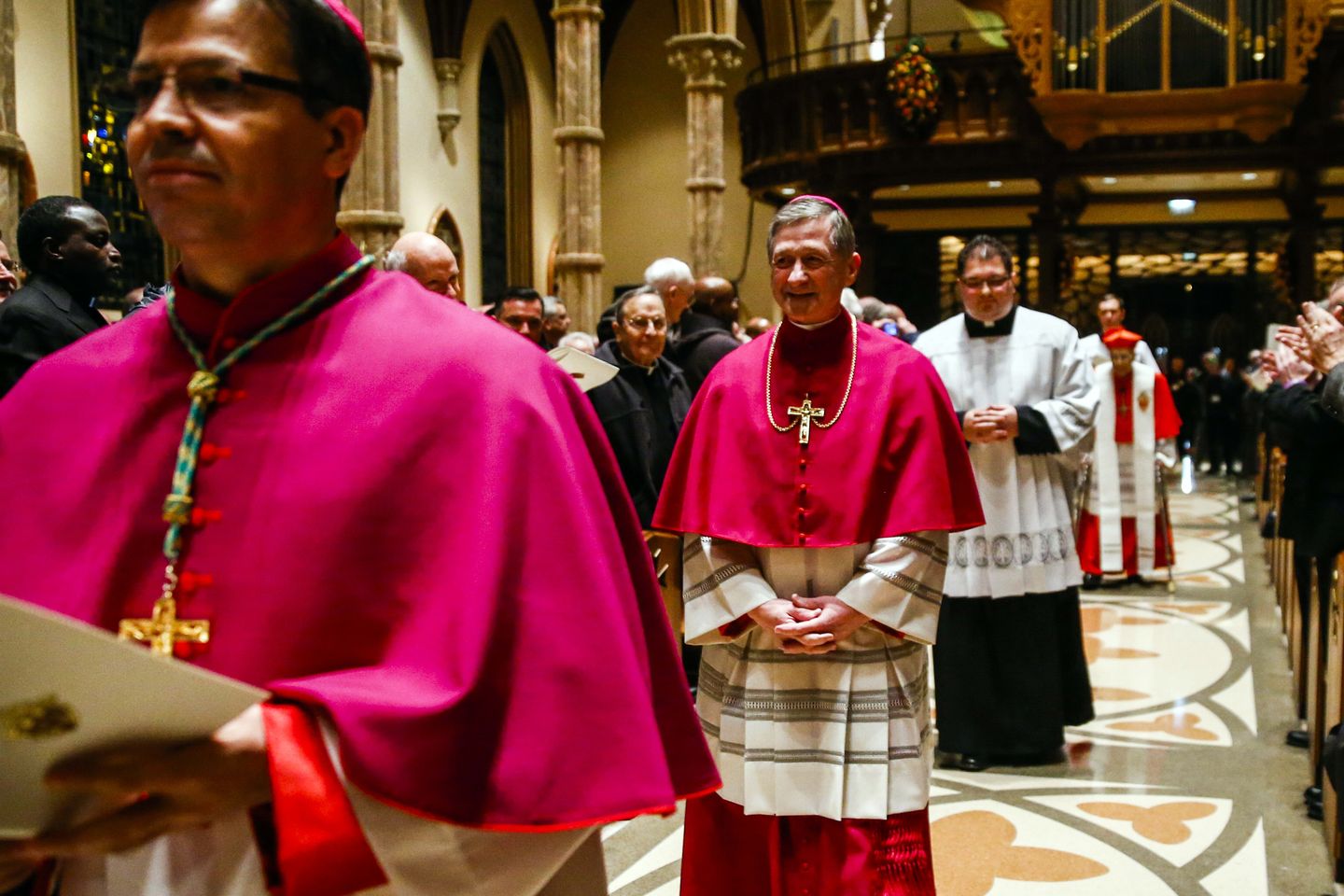Illinois Catholic Diocese Didn’t Investigate 500 Priests Accused of Sexual Abuse
By Lilly Dancyger
Illinois Attorney General Lisa Madigan released a damning preliminary report Wednesday on her office’s findings that the Catholic dioceses in the state had withheld the names of over 500 priests accused of sexually abusing minors. The investigation is ongoing, though the report says “the Office has reviewed enough information to conclude that the Illinois Dioceses will not resolve the clergy sexual abuse crisis on their own.” The report found that Illinois dioceses received reports of abuse by approximately 690 clergy, but only reported 185 as having been “credibly” accused, meaning that approximately 75 percent of all reports they received were not investigated. The dioceses often did not investigate if the accused priest was deceased or retired, or if only one victim had come forward, and often “sought to discredit a survivor’s allegations based upon the survivor’s personal life.” “While the Illinois Dioceses have touted their ‘independent audits’ as evidence that they are adequately responding to clergy sexual abuse allegations,” the report concludes, “the audits are seemingly not designed to discover clergy abuse, but rather are perfunctory.” “The preliminary stages of this investigation have already demonstrated that the Catholic Church cannot police itself,” Madigan said in a press release about her office’s report. “Allegations of sexual abuse of minors, even if they stem from conduct that occurred many years ago, cannot be treated as internal personnel matters.” In 2002, after the explosive Boston Globe report that first brought the epidemic of sexual abuse by priests to light, the United States Conference of Catholic Bishops (USCCB) established the Charter for the Protection of Children and Young People, outlining policies and procedures for dioceses to internally investigate and remove predatory priests. But a 900-page grand jury report released in Pennsylvania in August, detailing hundreds of abuses by clergy and efforts of leadership within the church to cover up allegations, rather than investigate them as outlined in the Charter, exposed many flaws in the system of internal investigation. The grand jury report, the result of an investigation launched by Pennsylvania Attorney General Josh Shapiro in 2016, compiled dozens of victim testimonies and outlined a “sophisticated” cover-up by top church officials, prompting several other states and the Department of Justice to launch their own investigations, independent of the internal church inquiries. The DOJ is looking into whether the church’s obfuscation could warrant charges under the Racketeering Influenced and Corrupt Organizations (RICO) statute, usually reserved for organized crime syndicates, and enacted in 1970 to combat the Mafia. Madigan’s report noted that a central problem with the Illinois dioceses handling of abuse allegations is that the Charter guidelines for how to actually implement its procedures are “lacking,” so the six dioceses in Illinois each used different standards to determine whether accusations against priests were “credible.” “Across Illinois, inconsistent policies, procedures, and practices have led to the inconsistent handling of child sex abuse investigations by the dioceses, yielding, at best, inconsistent results and, at worst, inadequate investigations that fail to satisfy the Catholic Church’s Charter, which seeks to hold clergy accountable and provide relief and healing to survivors,” the report says, recommending a standardized system to determine whether allegations are credible and how to carry out investigations. When Madigan’s office launched their investigation, they also opened a hotline for victims of clergy abuse to come forward and report directly to the Attorney General’s office. Since the hotline opened in August, they have received over 300 reports. “Survivors informed the Office that, at various times over the years, they reported the abuse they suffered to one of the Illinois Dioceses,” the report says. “Most shared that the diocese they contacted failed to take action against the clergy they accused of sexual abuse, or failed to follow up when they requested information about the accused. As a result, survivors have struggled to heal, receive justice, and find closure.” “I want to express again the profound regret of the whole church for our failures to address the scourge of clerical sexual abuse,” Cardinal Blase J. Cupich, the archbishop of Chicago, said in a statement in response to Madigan’s report. “It is the courage of victim-survivors that has shed purifying light on this dark chapter in church history.” Madigan served four terms as Illinois Attorney General, and will leave office next week. Her successor, fellow democrat Kwame Raoul, has said he’s committed to continuing this investigation and working closely with prosecutors.
|
.
Any original material on these pages is copyright © BishopAccountability.org 2004. Reproduce freely with attribution.
